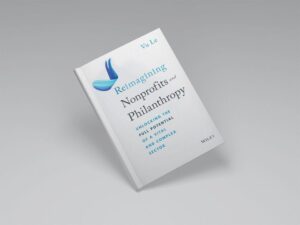
February 20, 2018; Portland Tribune
The board of the Black Parent Initiative has fired its longtime CEO, Charles McGee, following the revelation of his history of sexual misconduct. Reports indicate that he was put on leave pending an investigation into one specific charge of sexual misconduct some days earlier. When that investigation revealed other cases, including one that had been reported by a staff person in 2016, McGee was fired.
This is a timely coincidence, following as it does on the heels of yesterday’s article from Anne Wallestad, wherein the president and CEO of BoardSource says the time has come for nonprofit boards to discuss what to do in this very circumstance. Wallestad offers some questions boards should ask prior to the emergence of a crisis. Some of the BPI board’s actions are very much in line with her recommendations; others missed the mark by a lot.
BPI was founded in 2006 (although GuideStar reports that the IRS granted tax exempt status in 2009) with a mission to “help families achieve financial, educational, and spiritual success.” Its programs are described as culturally specific and based on research that demonstrates a child’s success can be traced to active and engaged parents. The most recent IRS Form 990 posted on GuideStar indicates the organization had a budget of slightly under $1 million in 2016. McGee was reported as earning slightly more than $72,000. He is listed as an officer of the organization, along with three of the other four other board directors.
BPI’s current board of directors acted quickly when allegations of McGee’s misconduct surfaced. On February 7th, Willamette Weekly published a report covering the story of a woman who had come forward with allegations that she had been sexually assaulted by McGee and another man. One day before the report was published, McGee announced without explanation that he was quitting the race for County Commissioner. Very quickly, the BPI board placed McGee on administrative leave, saying that they would conduct an investigation into the allegations.
One week later, the BPI Board released a statement, which read:
Sign up for our free newsletters
Subscribe to NPQ's newsletters to have our top stories delivered directly to your inbox.
By signing up, you agree to our privacy policy and terms of use, and to receive messages from NPQ and our partners.
The board of directors of BPI has terminated former CEO Charles McGee’s employment, effective immediately. As you know, last week BPI placed Mr. McGee on administrative leave pending an investigation into accusations of sexual misconduct. During the course of the investigation, BPI’s board has learned of another sexual harassment complaint leveled at Mr. McGee. To protect the identity of the accuser, no additional information will be provided unless that person chooses to make a public statement. BPI will continue its investigations and as more facts are known, will share as appropriate with the BPI community.
According to Anne Wallestad’s recommendations, this was well done. The board took the reports of misconduct seriously and took significant steps to verify the accusation. When the time came to fire McGee, they made a clear, public statement of what had happened.
The issue comes some years earlier, however. The unnamed second accuser was actually an AmeriCorps worker at BPI, and her allegation was made in late 2015 at the suggestion of her supervisor. The report never made it to the board until some time later. Instead, it was read by some senior staff and by McGee, whose actions then led to the worker’s resignation. This suggests there was no clear whistleblower policy or that it simply wasn’t followed. Had there been a whistleblower policy, and if it had been made available as part of the personnel manual, the woman making the accusation might have known whom to go to when she found out that nothing was being done. This runs afoul of one of Ms. Wallestad’s main recommendations: have a whistleblower policy, and one that contains a clear path of communication to the board if the chief executive is being accused.
When they did hear about the allegation some months later, the board launched an investigation. The employee was allowed to confront McGee, but the board took no action against him or other members of the staff. In December of 2016, the entire board resigned. They filed an internal document describing what they had learned and that they were resigning as a result of not having received information about the accusation in a timely fashion. Again, this runs afoul of one of Ms. Wallestad’s recommendations, which is for the board to demonstrate real accountability. Putting the issue in a file drawer and then walking away from the organization altogether doesn’t do it.
BPI apparently operated without a board of directors for nine months before a new board was installed. It would be interesting to explore this, as Oregon state statutes clearly state that a nonprofit organization must have a board of directors. In addition, if there was no board, who voted the new board in? It was only when the story broke in the Willamette Weekly and the board looked into McGee’s personnel file that they discovered the report from the previous board.
By all reports, BPI does a lot of good work, and many have called for the community to continue supporting it. Even the AmeriCorps worker involved in this case has offered support for the work the organization does. Charles Smith, who had been serving as the Program Director, has been installed as an interim chief executive, and his biography indicates some significant experience and accomplishments. So, now the board’s responsibility is to put a recovery plan in place—a plan that includes steps to avoid this problem in the future.—Rob Meiksins











